Safe & Sound: Navigating Plastic Surgery in India
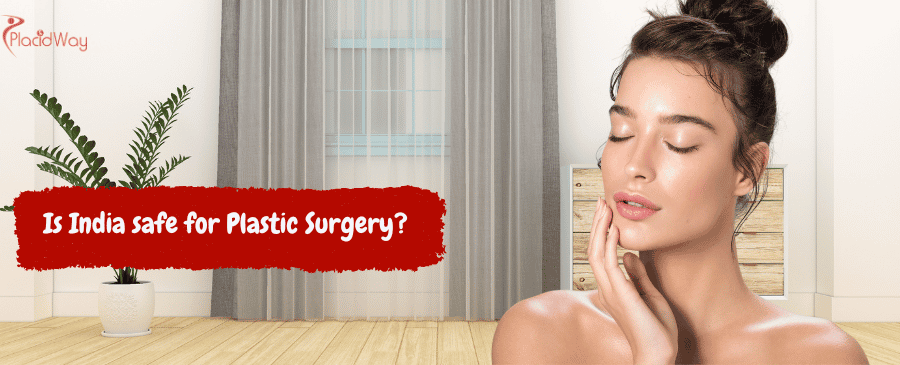
Considering plastic surgery is a significant decision, and for many, exploring options beyond their home country is a smart way to find high-quality care at a more accessible price. India has emerged as a popular destination for medical tourism, including cosmetic procedures. But a natural and crucial question arises: "Is India safe for plastic surgery?" The answer, in short, is yes, it can be, provided you approach it with careful research and informed choices.
India boasts a growing number of highly skilled plastic surgeons, many of whom have received training from prestigious institutions globally. Hospitals and clinics in major Indian cities are often equipped with cutting-edge technology and adhere to international hygiene and safety standards. This blend of expertise, advanced facilities, and competitive pricing makes India an attractive option for those seeking various aesthetic enhancements, from rhinoplasty and liposuction to more complex reconstructive surgeries. However, as with any medical procedure, especially one performed abroad, thorough preparation and due diligence are key to ensuring a safe and successful outcome. This guide will delve into the various aspects of plastic surgery in India, addressing common concerns and providing detailed insights to help you make an informed decision.
What makes India a safe destination for plastic surgery?
India has rapidly become a hub for medical tourism, and plastic surgery is a significant part of this growth. Several factors contribute to its safety profile. Firstly, many plastic surgeons in India have extensive training, often from renowned institutions in the US, UK, Europe, and Australia. This global exposure means they are well-versed in advanced surgical techniques and adhere to international best practices.
Secondly, a considerable number of hospitals and clinics in India, particularly those catering to international patients, are accredited by recognized bodies like the National Accreditation Board for Hospitals & Healthcare Providers (NABH) in India or even internationally by the Joint Commission International (JCI). These accreditations signify that the facilities meet stringent quality and patient safety standards, including infection control, equipment maintenance, and emergency preparedness. Patients can expect modern operating rooms, advanced diagnostic tools, and comprehensive post-operative care in such facilities.
What qualifications should I look for in a plastic surgeon in India?
The qualifications of your surgeon are paramount for a safe and successful plastic surgery experience. In India, a qualified plastic surgeon should typically have:
-
MBBS (Bachelor of Medicine, Bachelor of Surgery): This is the basic medical degree.
-
MS (Master of Surgery): A postgraduate degree in general surgery.
-
MCh (Master of Chirurgiae) or DNB (Diplomate of National Board) in Plastic Surgery: These are specialized postgraduate degrees in plastic and reconstructive surgery. These indicate dedicated training in the field.
Beyond degrees, look for:
-
Board Certification: Membership or certification from the Indian Association of Plastic Surgeons (IAPS) signifies that the surgeon has met rigorous standards of training and ethical practice. Many top surgeons also hold international fellowships or memberships in global organizations like the International Society of Aesthetic Plastic Surgery (ISAPS).
-
Experience: Inquire about the surgeon's experience with the specific cosmetic procedure you are interested in. A surgeon who performs the procedure frequently is likely to have better outcomes.
-
Specialization: Some surgeons specialize in particular areas, such as facial surgery, breast surgery, or body contouring. Choosing a surgeon whose expertise aligns with your needs can be beneficial.
What should I expect during the plastic surgery consultation in India?
A comprehensive consultation is a crucial first step for any plastic surgery. When consulting with a plastic surgeon in India, you should expect:
-
Detailed Medical History: The surgeon will review your complete medical history, including past surgeries, existing medical conditions, medications, allergies, and lifestyle habits (e.g., smoking, alcohol consumption).
-
Physical Examination: A physical assessment related to the procedure you are considering will be conducted. For example, for a rhinoplasty, your nasal structure will be examined.
-
Discussion of Goals and Expectations: You'll have an in-depth conversation about your aesthetic goals and what you hope to achieve. The surgeon should provide a realistic assessment of what can be accomplished and discuss any limitations.
-
Explanation of Procedure: The surgeon will explain the specific plastic surgery procedure in detail, including the surgical technique, anesthesia type, duration, and recovery process.
-
Risks and Complications: A transparent discussion about potential risks, complications, and side effects associated with the procedure is essential.
-
Pre- and Post-operative Instructions: Clear instructions regarding preparation for surgery (e.g., stopping certain medications, fasting) and post-operative care (e.g., wound care, activity restrictions) should be provided.
-
Cost Breakdown: A clear, itemized breakdown of all costs involved, including surgeon's fees, anesthesia, hospital stay, and post-operative garments, should be presented.
-
Opportunity for Questions: You should feel comfortable asking any questions you have and receive thorough, understandable answers. Many clinics offer online consultations before you travel, which can be very helpful for initial screening and planning.
What are the common risks associated with plastic surgery, and how are they managed in India?
While plastic surgery can offer transformative results, it's important to be aware of potential risks. These risks are inherent to any surgical procedure, regardless of location. In India, reputable clinics and surgeons employ various measures to minimize these:
-
Infection: This is a concern with any surgery.
-
Management in India: Accredited hospitals maintain strict sterilization protocols for operating rooms and instruments. Surgeons prescribe prophylactic antibiotics, and proper wound care instructions are given for post-operative recovery.
-
-
Bleeding/Hematoma: Excess bleeding or a collection of blood under the skin (hematoma) can occur.
-
Management in India: Surgeons employ meticulous surgical techniques to minimize bleeding. Patients are often advised to stop blood-thinning medications before surgery. Close post-operative monitoring helps detect and manage any significant bleeding promptly.
-
-
Scarring: While surgeons aim for minimal and discreet scars, some scarring is inevitable.
-
Management in India: Skilled plastic surgeons use techniques to place incisions in less visible areas. Post-operative scar management strategies, such as silicone sheets or creams, may be recommended. Individual healing varies.
-
-
Anesthesia Complications: Reactions to anesthesia are rare but can occur.
-
Management in India: Board-certified anesthesiologists administer and monitor anesthesia. Pre-operative assessments identify any risks, and emergency equipment and protocols are in place to manage adverse reactions.
-
-
Nerve Damage: Temporary or permanent numbness, tingling, or weakness can occur depending on the surgical area.
-
Management in India: Surgeons have in-depth anatomical knowledge and use precise techniques to avoid nerve injury.
-
-
Asymmetry or Unsatisfactory Results: Despite the surgeon's best efforts, sometimes results may not fully meet expectations, or minor asymmetries can occur.
-
Management in India: Reputable surgeons emphasize realistic expectations during consultation. Some clinics offer revision surgeries, though it's crucial to understand their policy on this.
-
How do the costs of plastic surgery in India compare to Western countries?
One of the primary drivers for medical tourism to India, including plastic surgery, is the significant cost advantage.
-
Lower Operating Costs: The overall cost of running a medical facility, including labor, infrastructure, and medical supplies, is considerably lower in India compared to Western nations.
-
Competitive Market: The robust medical tourism sector in India fosters competition among healthcare providers, which helps keep prices competitive.
-
Exchange Rates: Favorable exchange rates can further enhance the affordability for international patients.
While prices are lower, it's important to confirm what is included in the quoted price. This typically covers:
-
Surgeon's fees
-
Anesthesia fees
-
Hospital/clinic facility fees
-
Pre-operative tests
-
Post-operative follow-ups during your stay
However, it generally does not include:
-
Flights and accommodation
-
Travel insurance
-
Post-operative medications after discharge
-
Any unforeseen complications requiring extended stay or additional procedures (though this is rare with proper planning).
A typical cosmetic procedure like rhinoplasty or liposuction could cost 50-70% less in India than in North America or Europe, making it a very appealing option for many.
What is the typical recovery time for plastic surgery in India, and how long should I plan to stay?
The recovery time for plastic surgery is highly dependent on the specific procedure performed. However, for patients traveling for medical tourism, it's crucial to plan an adequate stay for initial healing and follow-up appointments.
-
Facial Procedures (e.g., Rhinoplasty, Eyelid Surgery):
-
Initial healing: 7-10 days for stitches removal and significant swelling reduction.
-
Recommended stay: 10-14 days to ensure proper initial healing and follow-up with the surgeon before travel.
-
Full recovery: Several weeks to months for complete swelling resolution and final results.
-
-
Breast Procedures (e.g., Breast Augmentation, Lift, Reduction):
-
Initial healing: 1-2 weeks for drain removal (if applicable) and initial discomfort to subside.
-
Recommended stay: 10-14 days.
-
Full recovery: 6-8 weeks for strenuous activities, 6-12 months for final results.
-
-
Body Contouring (e.g., Liposuction, Tummy Tuck):
-
Initial healing: 2-3 weeks for significant swelling and bruising to reduce. Drains may be in place.
-
Recommended stay: 2-3 weeks, especially for more extensive procedures like a tummy tuck, to ensure proper wound healing and initial follow-ups.
-
Full recovery: Several months for swelling to fully resolve and results to stabilize. Compression garments are typically required for weeks.
-
It's vital to prioritize recovery over tourism. Patients should plan their stay around rest, proper hygiene, and follow-up appointments. Rushing back home too soon can increase the risk of complications. Your surgeon will provide specific guidelines based on your chosen procedure.
What post-operative care and follow-up can I expect in India?
Comprehensive post-operative care is critical for a smooth recovery and optimal results from plastic surgery. In reputable Indian clinics, you can expect:
-
In-hospital Monitoring: Immediately after surgery, you will be monitored in a recovery area by trained nursing staff to ensure your vital signs are stable and to manage any immediate post-anesthesia effects.
-
Pain Management: You will receive appropriate pain medication to manage discomfort during the initial recovery phase.
-
Wound Care: Nurses will assist with initial wound care, dressing changes, and drain management (if applicable). You will be given detailed instructions on how to care for your surgical sites once discharged.
-
Follow-up Consultations: Your surgeon will schedule multiple follow-up appointments during your stay to check on your healing progress, remove stitches or staples, and address any concerns.
-
Medication Prescriptions: You will receive prescriptions for necessary medications, such as antibiotics and pain relievers, for your recovery period.
-
Activity Restrictions: Clear guidelines on activity restrictions, including showering, exercise, and lifting, will be provided.
-
Emergency Contact: You should be given an emergency contact number for any urgent concerns that may arise during your recovery in India.
For patients returning home, many clinics also offer options for remote follow-up or provide comprehensive reports for your local doctor.
Are there language barriers when getting plastic surgery in India?
For international patients, communication is vital. Fortunately, language barriers are typically not a significant issue for plastic surgery patients in India.
-
English Proficiency: English is widely spoken by medical professionals, including plastic surgeons, nurses, and administrative staff, especially in urban centers and hospitals catering to international patients.
-
Medical Tourism Facilitators: Many medical tourism companies and hospitals offer dedicated international patient services, which often include language support or translators for other languages if required.
-
Clear Communication: Even without a professional translator, medical staff are usually adept at communicating clearly about procedures, risks, and post-operative care.
It's always a good idea to confirm language support services when you are initially researching clinics and speaking with their international patient coordinators.
What types of plastic surgery procedures are commonly performed in India?
Indian plastic surgeons offer a comprehensive range of cosmetic and reconstructive procedures. Some of the most commonly sought-after procedures by international patients include:
-
Facial Surgeries:
-
Rhinoplasty (Nose Job): Reshaping the nose for aesthetic balance or to improve breathing.
-
Blepharoplasty (Eyelid Surgery): Correcting droopy eyelids or removing excess skin and fat around the eyes.
-
Facelift (Rhytidectomy): Tightening facial skin and underlying tissues to reduce wrinkles and sagging.
-
Otoplasty (Ear Surgery): Reshaping or repositioning ears.
-
Chin and Cheek Implants: Enhancing facial contours.
-
-
Breast Surgeries:
-
Breast Augmentation: Increasing breast size using implants or fat transfer.
-
Breast Lift (Mastopexy): Reshaping and lifting sagging breasts.
-
Breast Reduction: Reducing breast size for comfort and aesthetics.
-
Gynecomastia Treatment: Male breast reduction.
-
-
Body Contouring:
-
Liposuction: Removing localized fat deposits from various body areas.
-
Tummy Tuck (Abdominoplasty): Removing excess skin and fat from the abdomen and tightening abdominal muscles.
-
Buttock Augmentation (BBL): Enhancing buttock size and shape, often with fat transfer.
-
Arm Lift (Brachioplasty) and Thigh Lift: Removing excess skin and fat from the upper arms or thighs.
-
-
Reconstructive Surgeries:
-
Burn reconstruction
-
Cleft lip and palate repair
-
Post-trauma reconstruction
-
Microsurgery
-
What are the things to know before traveling to India for plastic surgery?
To ensure a smooth and safe experience for your plastic surgery journey to India, consider these important points:
-
Thorough Research: Don't rush your decision. Research multiple surgeons and clinics. Check their websites, read patient reviews, and verify accreditations.
-
Verify Credentials: As mentioned, confirm your surgeon's qualifications and board certifications. Ask for their experience with the specific procedure you want.
-
Online Consultation: Schedule an initial online consultation. This allows you to discuss your goals, get a preliminary assessment, and build rapport with your chosen surgeon before committing to travel.
-
Understand the Full Cost: Get an itemized quote that clarifies what is and isn't included. Account for travel, accommodation, and post-operative needs.
-
Medical Visa: Most countries require a medical visa (M Visa) for medical treatment in India. Start the application process well in advance, as it requires a formal consultation letter and treatment plan from the hospital/surgeon.
-
Recovery Timeline: Be realistic about your recovery. This is not a vacation. Plan for adequate rest and avoid extensive sightseeing immediately after surgery. Ensure you have enough time for initial healing and follow-up appointments before flying back home.
-
Medical Insurance/Contingency Plan: Standard travel insurance typically doesn't cover elective cosmetic procedures or complications. Consider specific medical travel insurance or have a financial contingency plan in case of unforeseen complications or extended stays.
-
Health Optimization: Optimize your health before surgery. If you smoke, have uncontrolled diabetes, or are overweight, your surgeon may advise you to address these issues to minimize risks and improve outcomes.
-
Accommodation: Choose accommodation close to the hospital or clinic for convenience during recovery and follow-up visits.
-
Support System: If possible, travel with a companion who can assist you during your recovery.
What are the success rates of plastic surgery in India?
India's plastic surgery sector has seen exponential growth, and with it, a rise in successful outcomes. While specific, universally published success rates for all procedures are difficult to pinpoint (as they vary by procedure, surgeon, and patient factors), several indicators suggest high success rates in reputable Indian facilities:
-
High Volume: India performs a significant number of aesthetic procedures annually, ranking among the top countries globally for certain surgeries like rhinoplasty and liposuction. High volume often correlates with surgeon experience and better outcomes.
-
Skilled Surgeons: The presence of a large pool of highly trained and experienced plastic surgeons, many with international exposure, contributes to successful results.
-
Advanced Technology: Access to modern surgical equipment and techniques in accredited hospitals helps optimize procedural success and patient safety.
-
Patient Testimonials: Many positive patient testimonials and before-and-after galleries from reputable clinics showcase successful transformations.
It's important to remember that "success" in plastic surgery also includes patient satisfaction and achieving realistic goals. Discussing expected outcomes with your surgeon is crucial for a successful experience.
Can I combine plastic surgery with a vacation in India?
While the idea of combining a plastic surgery trip with a vacation in India might seem appealing, it's generally not recommended, especially for the immediate post-operative period.
-
Prioritize Recovery: Plastic surgery, even seemingly minor procedures, is still a surgical intervention that requires significant rest and careful adherence to post-operative instructions.
-
Risk of Complications: Engaging in extensive sightseeing, long walks, or strenuous activities too soon can increase the risk of complications such as swelling, bruising, infection, or delayed healing.
-
Fatigue: Traveling, even domestically within India, can be tiring. You will likely experience fatigue during your recovery, making tourism less enjoyable and potentially detrimental to your healing.
-
Follow-up Appointments: Your schedule will be dictated by follow-up appointments with your surgeon for dressing changes, stitch removal, and progress checks.
-
Hygiene and Comfort: Focus on maintaining good hygiene and ensuring a comfortable environment for your recovery. Busy tourist areas might not offer the ideal conditions for healing.
If you wish to experience India's cultural richness, it's best to plan a separate leisure trip or, at the very least, schedule any tourism activities for after your surgeon has cleared you for full activity and you are feeling completely recovered, which might mean an extended stay. Your primary focus should be on your health and recovery.
What are the regulatory frameworks for plastic surgery clinics in India?
The regulatory landscape for healthcare in India, including plastic surgery clinics, is continuously evolving to enhance patient safety and quality of care. Key aspects include:
-
Medical Council of India (MCI): The MCI (now replaced by the National Medical Commission, NMC) is the apex body that regulates medical education and practice in India. It sets standards for medical qualifications, ethics, and professional conduct for all doctors, including plastic surgeons.
-
National Medical Commission (NMC): The NMC has taken over the functions of the MCI, with a focus on improving the quality and accessibility of medical education and healthcare services.
-
National Accreditation Board for Hospitals & Healthcare Providers (NABH): As mentioned earlier, NABH accreditation signifies adherence to national quality standards for hospitals and clinics. While not strictly mandatory for all clinics, a growing number of reputable facilities seek and maintain NABH accreditation voluntarily to demonstrate their commitment to quality.
-
State-Level Regulations: Individual states in India also have their own regulations for healthcare establishments, covering aspects like registration, infrastructure, and waste management.
-
Ethical Guidelines: Professional bodies like the Indian Association of Plastic Surgeons (IAPS) also establish ethical guidelines and codes of conduct for their members, promoting responsible practice.
While comprehensive regulation for all aesthetic clinics can still be a challenge given the vastness of the country, choosing a facility with NABH or JCI accreditation, and a surgeon certified by a recognized professional body like IAPS, significantly increases your assurance of safety and quality.
How do I choose a reputable medical tourism facilitator for plastic surgery in India?
A reliable medical tourism facilitator can simplify your journey for plastic surgery in India. Here’s what to look for:
-
Experience and Reputation: Choose facilitators with a proven track record and positive reviews from past patients. Look for companies that specialize in plastic surgery or have extensive experience in the field.
-
Transparency: A good facilitator will be transparent about costs, including their fees, and will provide clear breakdowns of the medical expenses. Avoid facilitators who offer vague pricing.
-
Partnerships with Accredited Facilities: Ensure the facilitator partners exclusively with NABH or JCI accredited hospitals and clinics. This indicates a commitment to quality and safety.
-
Access to Board-Certified Surgeons: They should connect you with plastic surgeons who are board-certified and have a strong reputation in their respective fields.
-
Comprehensive Services: Look for facilitators who offer end-to-end support, including:
-
Initial consultations with surgeons (often online)
-
Visa assistance
-
Travel and accommodation arrangements
-
Airport transfers
-
Appointment scheduling
-
Local support during your stay
-
Post-operative follow-up coordination
-
-
Communication: They should be responsive and communicate clearly in a language you understand.
-
Personalized Care: A good facilitator will understand your individual needs and preferences, offering tailored solutions rather than a one-size-fits-all approach.
By carefully vetting your facilitator, you can ensure a well-organized and less stressful medical tourism experience for your plastic surgery in India.
What are the ethical considerations for plastic surgery in India?
Ethical considerations are paramount in all medical fields, and plastic surgery is no exception. In India, ethical practices in plastic surgery typically revolve around:
-
Informed Consent: Patients must fully understand the procedure, including its benefits, risks, alternatives, and costs, before giving their consent. This consent should be voluntary and not coerced.
-
Realistic Expectations: Ethical plastic surgeons will thoroughly discuss what can realistically be achieved, managing patient expectations and declining procedures that are medically unnecessary or pose undue risks.
-
Patient Confidentiality: Maintaining strict patient privacy and confidentiality regarding medical records and personal information is a fundamental ethical principle.
-
Surgeon's Competence: Surgeons should only perform procedures for which they are adequately trained and experienced, ensuring patient safety and optimal outcomes.
-
Avoiding Undue Influence: Ethical practitioners avoid aggressive marketing or misleading claims. The decision to undergo plastic surgery should be solely driven by the patient's informed choice and their well-being.
-
Patient Selection: Surgeons should carefully assess a patient's physical and psychological suitability for a procedure, ensuring they are good candidates.
-
Post-operative Care Commitment: Ethical practice extends to ensuring adequate post-operative care and addressing any complications that may arise.
Reputable plastic surgeons and clinics in India adhere to these ethical guidelines, often guided by the principles laid out by professional bodies like the Indian Association of Plastic Surgeons (IAPS) and the National Medical Commission (NMC).
For solutions related to medical tourism, healthcare services, or other relevant offerings, explore PlacidWay.


.png)
.png)


.png)
.png)

.png)
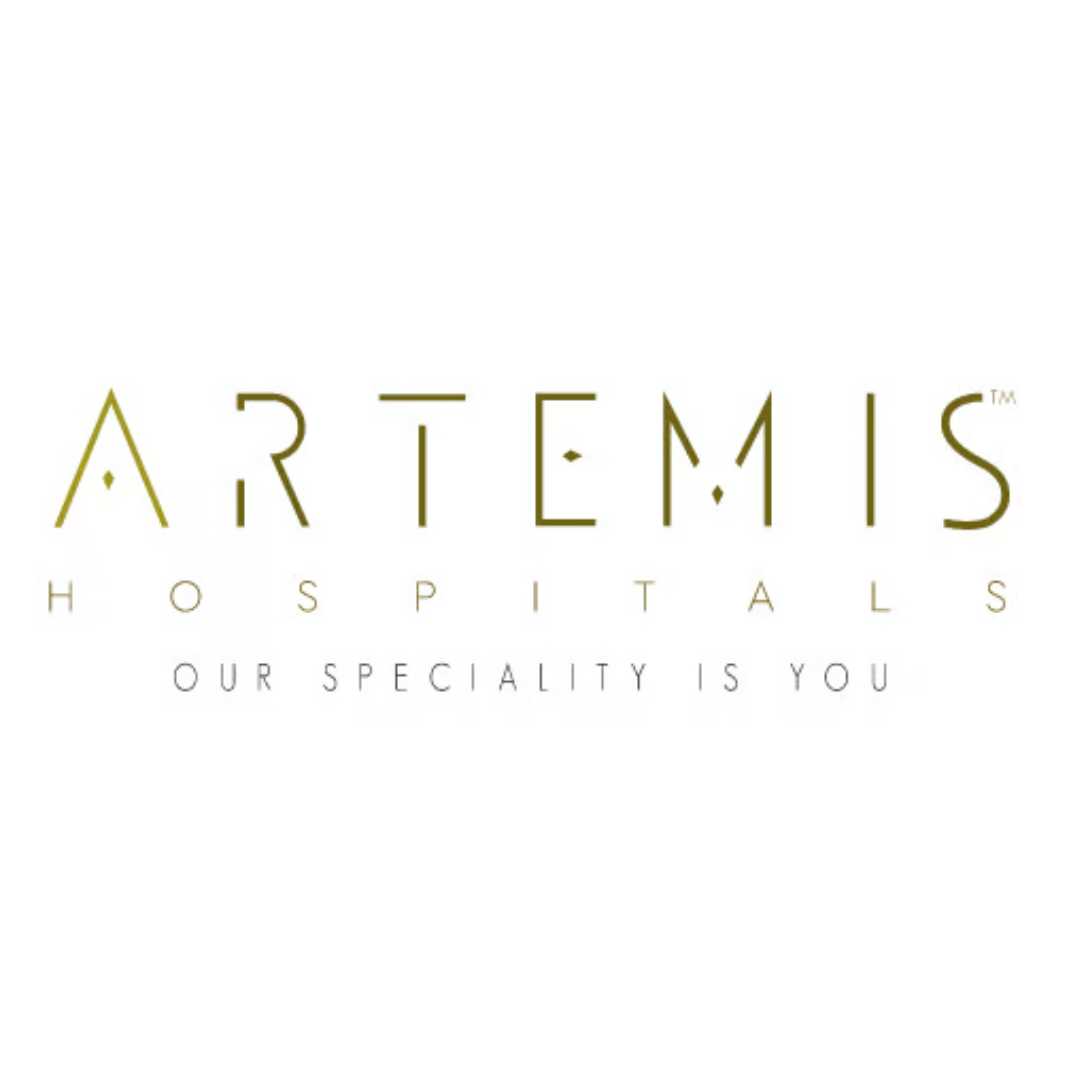
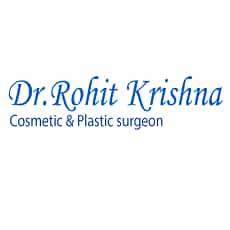
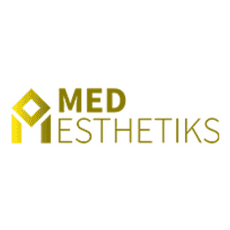

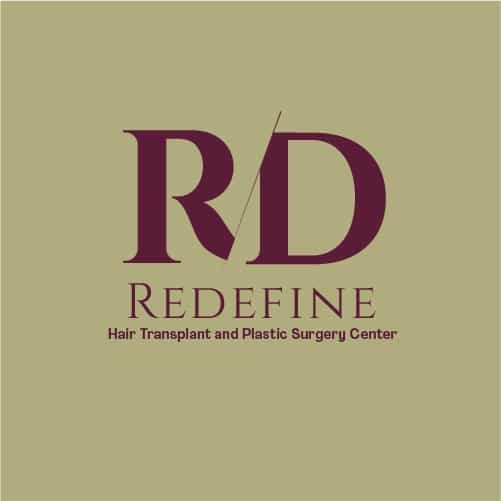

Share this listing